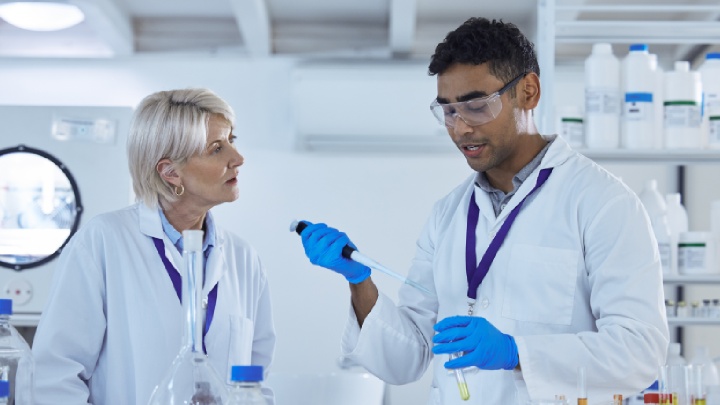DOE For Life Sciences R&D Professionals
Introduction
For Life Sciences R&D professionals, Design of Experiments (DOE) offers a structured framework to investigate the impact of multiple factors and their interactions on experimental outcomes. In the dynamic field of research, DOE enables the efficient design of experiments, reducing resource consumption while ensuring reliable and reproducible results. By combining statistical rigor with practical experimentation, DOE supports process optimization, hypothesis testing, and the extraction of critical insights. This powerful methodology empowers researchers to innovate with confidence, optimize workflows, and make data-driven decisions that enhance research quality and accelerate scientific advancements in Life Sciences.

What is Design of Experiments (DOE) ?
Design of Experiments (DOE) is a specialized area within applied statistics, focused on the systematic planning, execution and analysis of controlled experiments. It helps identify and evaluate factors that influence key parameters, offering a structured approach to uncover relationships and enhance results. Known for its adaptability, DOE Experiment is a crucial tool for researchers, enabling accurate data collection and valuable insights across various experimental environments. Whether optimizing processes or testing hypotheses, DOE Design equips researchers with the necessary methodology to make data-driven discoveries and drive impactful outcomes in their field of study.
How Design of Experiments (DOE) Benefits Life Sciences R&D Professionals ?
DOE provides significant advantages for R&D Professionals in Life Sciences, equipping them with essential skills that enhance their professional expertise, foster recognition in the field, and open doors to expanded opportunities. This expertise accelerates career progression by enabling them to drive impactful research, optimize experimental designs, and contribute to advancements in life sciences, positioning them as leaders in the industry.
Here’s how DOE specifically benefits Life Sciences R&D Professionals:
Business Benefits of Design of Experiments (DOE) in Life Sciences Organisations
DOE Experiment offers strategic, operational and financial advantages that can transform how Life Sciences organisations operate. Below is a detailed analysis of its business benefits:
DOE Training & DOE Consulting Services
Elevate your research & development capabilities with our DOE Masterclass Training Program and DOE Consulting Services, tailored specifically for Life Sciences R&D professionals. Our comprehensive training empowers teams to master Design of Experiments (DOE) techniques, enabling efficient process optimisation, quality improvement and data-driven decision-making. Backed by expert consulting, we provide customised solutions to tackle complex R&D challenges, accelerate innovation and enhance product development. Whether you’re advancing your skills or seeking expert guidance, our offerings are designed to drive excellence and deliver impactful results in the life sciences domain.